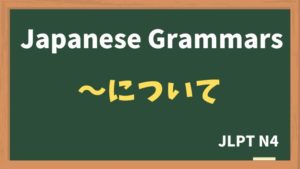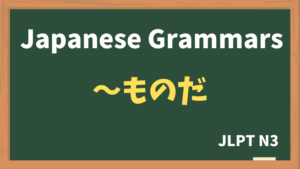
Explanation:〜たものだ
fa-check-circleMeaning
"would often / used to"
Used to express nostalgia or reminiscence about past events or experiences. It often reflects the speaker's feelings about something that was habitual or frequent in the past but is no longer the case.
fa-check-circleForm
V(ta form)+ ものだ
fa-check-circlePoints
- Expresses Nostalgia: This expression is commonly used to talk about past habits or events with a sense of nostalgia or fondness.
- Reflects a Past Habit or Situation: It refers to actions or situations that happened repeatedly or regularly in the past.
- Used in Informal Speech: While it can be used in written language, it is more commonly found in spoken language, especially when reminiscing.
fa-check-circleJLPT Level
N3
Sample sentenes
子供のころは、よく家族と旅行したものだ。
When I was a child , I used to travel with my family.
子供のころは、よく友達と公園で遊んだものだ。
When I was a child, I used to play with my friend at the park.
子供のころは、よく母に怒られて泣いたものだ。
When I was a child, I used to be scolded by my mom and I would cry.
大学時代は、よく遊び、よく勉強したものだ。
When I was in college, I would often hang out and study.
学生時代は、夜遅くまで勉強したものだ。
I used to study until late at night during my student days.
昔はよく兄とケンカしたものだ。
When I was young, I would often fight with my older brother.
昔は、先生によく怒られたものだ。
When I was young, I was always scolded by my teachers.
若いころは、よく一人で旅をしたものだ。
When I was young, I used to travel alone.
Vocabulary
| Japanese |
English | |
| 怒られる | おこられる | to be scolded |
| 昔 | むかし | old times / old days / in the past |
| 初心者 | しょしんしゃ | beginner |
| 文字 | もじ | letter |
| お年寄り | おとしより | old people |






